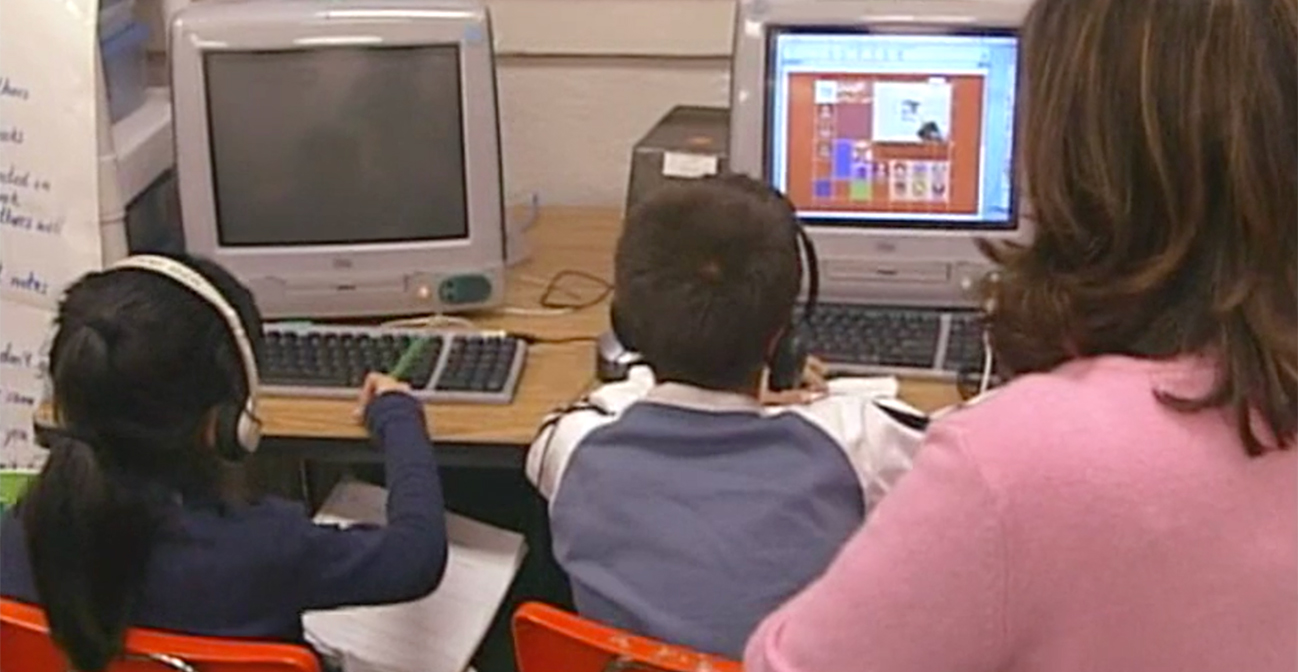Join us for conversations that inspire, recognize, and encourage innovation and best practices in the education profession.
Available on Apple Podcasts, Spotify, Google Podcasts, and more.

 How has the Internet changed traditional views of literacy instruction? What reading strategies are necessary to comprehend text on the Internet? What challenges do teachers face in providing instruction in the new literacies in grades 3-5? In this session, literacy expert Donald Leu addresses the reading and writing strategies required for using the Internet and how these new literacies are changing the way we teach. You will learn how to integrate technology into your literacy curriculum and enhance literacy learning in your classroom.
How has the Internet changed traditional views of literacy instruction? What reading strategies are necessary to comprehend text on the Internet? What challenges do teachers face in providing instruction in the new literacies in grades 3-5? In this session, literacy expert Donald Leu addresses the reading and writing strategies required for using the Internet and how these new literacies are changing the way we teach. You will learn how to integrate technology into your literacy curriculum and enhance literacy learning in your classroom.
“To be newly literate means to take advantage of the information resources that are on the Internet, and that requires new reading and writing skills. These new literacies are central to our students’ futures. Their futures are going to be defined by their ability to read, write, and communicate within networked information environments.”
Donald Leu
John and Maria Neag Endowed Chair in Literacy and Technology
University of Connecticut
 Donald J. Leu holds the John and Maria Neag Endowed Chair in Literacy and Technology at the University of Connecticut, and formerly taught at Syracuse University. He specializes in reading and Internet technologies. Professor Leu’s work addresses issues of both theory and practice, as the Internet has fundamentally redefined what it means to be literate. His research has been published in Reading Research Quarterly, Handbook of Reading Research, The Reading Teacher, Teaching with the Internet, and Effective Literacy Instruction.
Donald J. Leu holds the John and Maria Neag Endowed Chair in Literacy and Technology at the University of Connecticut, and formerly taught at Syracuse University. He specializes in reading and Internet technologies. Professor Leu’s work addresses issues of both theory and practice, as the Internet has fundamentally redefined what it means to be literate. His research has been published in Reading Research Quarterly, Handbook of Reading Research, The Reading Teacher, Teaching with the Internet, and Effective Literacy Instruction.
If you are taking this workshop for credit or professional development, submit the following assignments for Session 5: New Literacies of the Internet.
![]()
In this assignment, you will read two articles on new literacies and complete the Examine the Literature Response Chart.
![]()
In this activity, you will develop a lesson that guides your students to use the Internet to find out information about an author whose work they are reading in class.
![]()
In this activity, you will determine the background knowledge that is required to enhance students’ understanding of a novel you teach in your literacy program.
![]()
In this activity, you will write a summary of the ideas and strategies you explored in this session.
![]()
In this activity, you will continue to build your portfolio of instructional practices.
Labbo, L. D., D. J. Leu, Jr., C. Kinzer, W. Teale, D. Cammack, J. Kara-Soteriou, and R. Sanny. “Teacher Wisdom Stories: Cautions and Recommendations for Using Computer-Related Technologies for Literacy Instruction.” The Reading Teacher 57, no. 3 ( 2004): 300-304.
Leu, D. J., Jr. “Internet Project: Preparing Students for New Literacies in a Global Village.” The Reading Teacher 54, no. 5 (2001): 568-585.
Leu, D. J., Jr., D. D. Leu, and J. Coiro. Teaching with the Internet K-12: New Literacies for New Times, 87. Norwood, MA: Christopher Gordon, 2004.
Wepner, S. B., W. J. Valmont, and R. Thurlow. Linking Literacy and Technology: A Guide for K-8 Classrooms. Newark, DE: International Reading Association, 2000.
![]()
Cyber Guides
This site provides supplementary, standards-based units of instruction focused on core works of literature.
Enchanted Learning
This site provides an extensive, organized resource for teachers and students.
Hazel’s Homepage
This site contains ideas for utilizing the Internet as a resource for curriculum material, with links to other useful sites